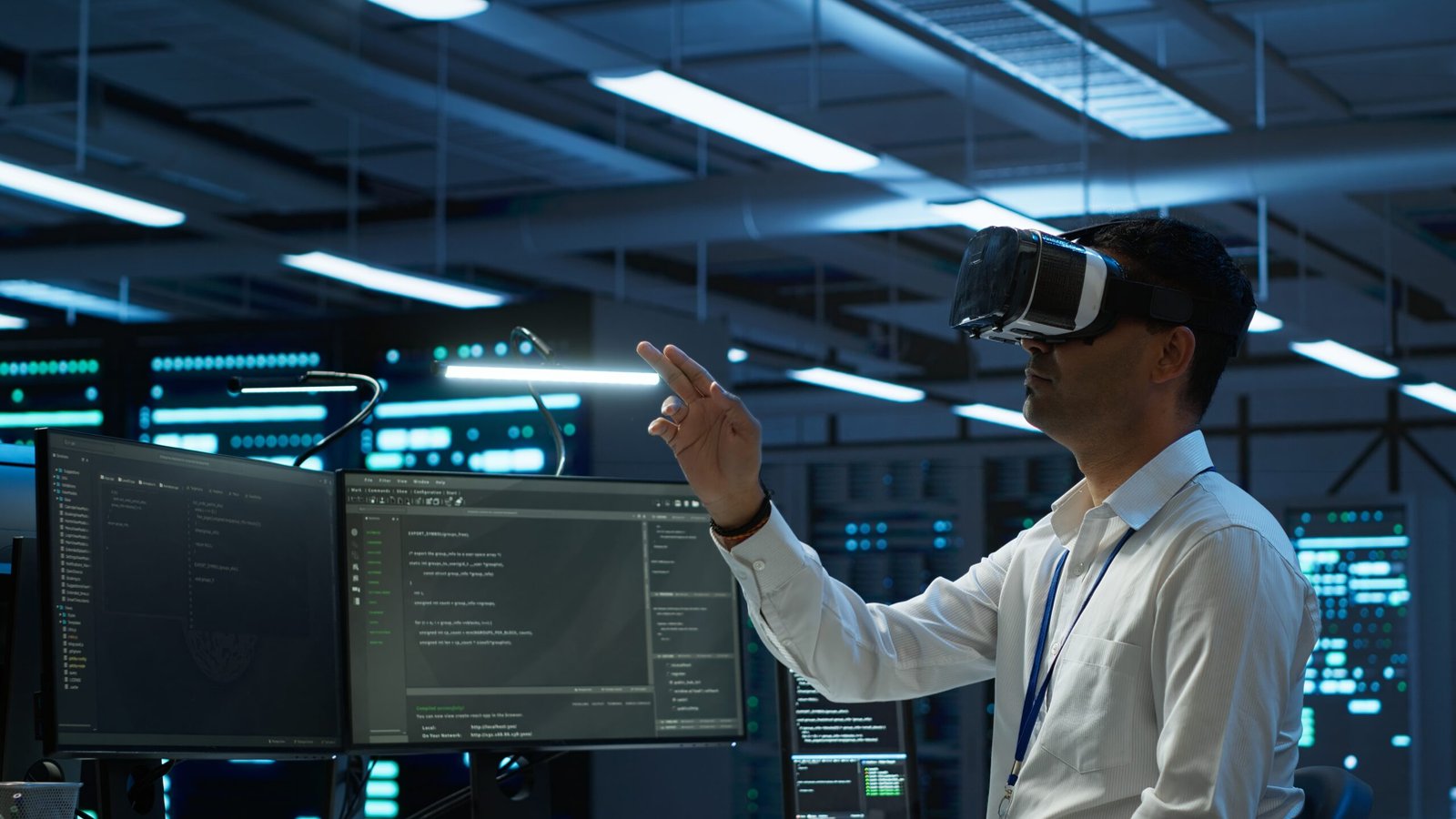
Introduction
In the modern world, technology has become an integral part of our daily lives, affecting how we work, communicate, learn, and even entertain ourselves. It’s hard to imagine life without the technological advancements that have revolutionized nearly every aspect of our society. From smartphones and social media to medical innovations and artificial intelligence, technology plays a pivotal role in shaping the present and future of human life. But why exactly is technology so important in our lives? Let’s explore its significance in various areas.
1. Enhancing Communication
One of the most profound impacts of technology is on communication. In the past, communication was limited to physical letters, landline phones, and face-to-face interactions. Today, technology enables instant communication with anyone, anywhere in the world, thanks to smartphones, social media platforms, emails, and video conferencing tools. This has bridged gaps across continents, allowing families to stay connected, businesses to collaborate globally, and people to share ideas in real-time.
Social media platforms like Facebook, Twitter, and Instagram have revolutionized how we interact with others, making it easier to keep in touch with friends and family, share life updates, and even build professional networks. Video calling platforms such as Zoom and Skype have made virtual meetings a commonplace practice, especially important in today’s remote-working culture.
2. Improving Education
Technology has transformed the education sector, making learning more accessible, engaging, and efficient. With the internet, students can access a wealth of information, research materials, and online courses that were previously unavailable. Educational apps, e-books, and video tutorials have made learning more interactive and customizable.
During the COVID-19 pandemic, for example, technology played a critical role in facilitating online learning. Schools, universities, and even private tutors turned to online platforms like Google Classroom, Zoom, and other digital tools to ensure that education continued despite lockdowns.
Moreover, educational technologies like virtual reality (VR) and augmented reality (AR) are now making it possible for students to experience immersive learning experiences. These tools allow them to explore subjects like science, history, and art in ways that traditional methods could never achieve.
3. Advancing Healthcare
Technology has brought about major advancements in healthcare, making it possible to diagnose and treat diseases more accurately and efficiently. Medical imaging technologies such as MRI, CT scans, and ultrasound have enabled doctors to detect diseases at early stages, even before symptoms appear. Surgical robots now allow for precision surgery with minimal invasion, reducing recovery times for patients.
Additionally, wearable health devices like fitness trackers and smartwatches enable individuals to monitor their health in real-time, from heart rate to sleep patterns. Telemedicine has become increasingly popular, providing patients with remote consultations and access to healthcare professionals without the need to travel long distances.
AI and machine learning are also revolutionizing healthcare by enabling predictive analytics. These technologies can analyze vast amounts of data, such as medical records, to predict outbreaks, assist in drug development, and personalize treatments for patients based on their unique needs.

4. Facilitating Daily Tasks
Technology has simplified many aspects of our daily lives. Everyday tasks that once required significant effort or time can now be completed in minutes. For example, shopping has become incredibly convenient with e-commerce platforms like Amazon and eBay. With just a few clicks, we can have groceries, clothes, or electronics delivered right to our doorstep.
Similarly, navigation apps like Google Maps and Waze have made getting from one place to another much easier. Whether you’re driving or walking, these apps provide real-time traffic information and alternate routes, helping you reach your destination more efficiently.
Smart home devices, like voice-controlled assistants (Amazon Alexa, Google Assistant), smart thermostats, and security cameras, have also contributed to the convenience of daily living. These devices help with everything from controlling the temperature of your home to managing your schedule, all with a simple voice command.
5. Fostering Economic Growth
Technology plays a key role in driving economic growth. From small businesses to large corporations, technology has enabled companies to streamline operations, improve productivity, and reach global markets. Automation, data analytics, and artificial intelligence have allowed businesses to work more efficiently, reducing costs and increasing profitability.
E-commerce has opened new opportunities for entrepreneurs to sell products and services globally, without the need for physical stores. The rise of digital marketing platforms has also made it easier for businesses to target specific customer groups, improving their marketing strategies.
Moreover, technology has led to the emergence of entirely new industries, such as app development, cybersecurity, and renewable energy. These industries continue to create jobs and economic opportunities, contributing to overall economic development.
6. Enhancing Entertainment
Entertainment is another area where technology has had a significant impact. From streaming platforms like Netflix, Spotify, and YouTube to virtual gaming and interactive media, technology has transformed how we access and consume entertainment. Gone are the days of relying on cable TV or physical movie rentals—today, we can watch movies, listen to music, and play games whenever we want, on any device.
The gaming industry, for example, has evolved with the advent of high-definition graphics, virtual reality (VR), and augmented reality (AR), creating entirely new forms of entertainment. People can now engage in immersive worlds, whether through gaming consoles, PC games, or mobile apps.
Conclusion
Technology is undoubtedly one of the most influential forces in our lives today. It has enhanced communication, transformed education, revolutionized healthcare, simplified daily tasks, boosted economic growth, and reshaped entertainment. While there are challenges, such as privacy concerns and the potential for job displacement, the overall impact of technology has been overwhelmingly positive.
